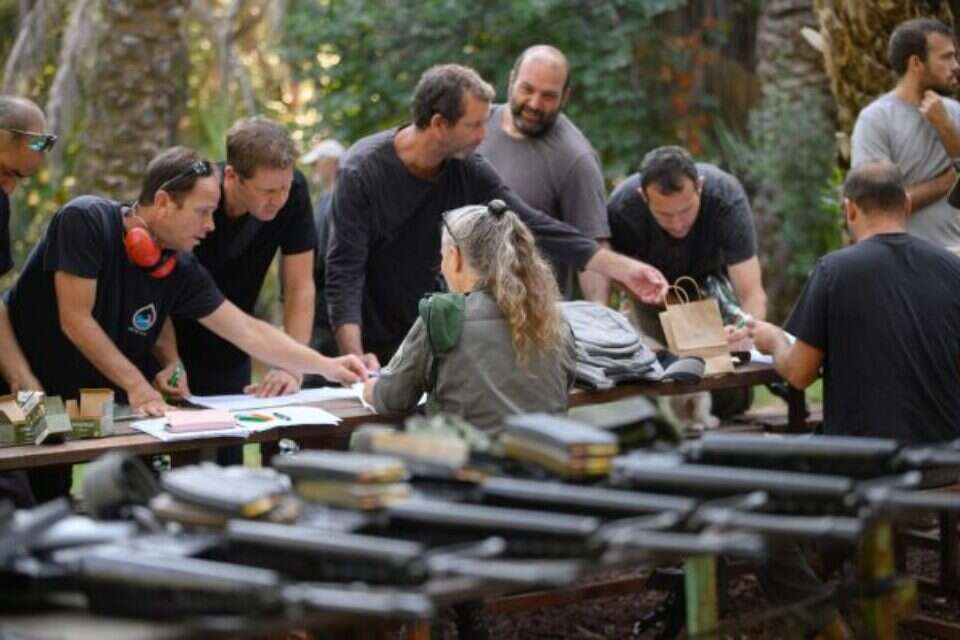Following the terrorist attacks of October 7, we are witnessing an intensive preoccupation with internal security. The home front that has become the front, the sense of civilian insecurity, the question mark hovering around the ability of security forces to defend – all these are driving processes that began before the outbreak of the war.
Alongside the increased presence of police and military forces in public spaces, there is an increasing activity of civilian elements, most of them volunteers, who have "gone under the stretcher" and aspire to take part in the defense of the home front. This civic movement is understandable: the powerlessness of the state in the first hours of the war burned trauma. These are significant changes: within a few weeks, hundreds of alert classes were established in cities and rural communities, more than 250,<> requests for private weapons were submitted, and weapons were distributed in an uncontrolled manner by various entities (for example, MKs testify that they distributed weapons to individual farms).
At the same time, non-police organizations are also expanding and establishing themselves. There is growing evidence of the establishment of unregulated alert squads throughout the country, whose members carry private firearms. Alongside these, independent civilian organizations operate openly, with the goal of promoting personal security separately from the security forces in the country. Thus, for example, in the first days after the events of October 7, civilian activists testified that they managed to recruit thousands of armed volunteers who "assisted" dozens of local authorities, particularly in mixed cities. Even worse, the activists testified that this was done in coordination with the police. Indeed, the police appointed a retired commissioner to manage coordination with these independent armed groups.
We are therefore witnessing a double development: on the one hand, a foreign perception is being imported to Israel, according to which more weapons equals more security – even if the weapons are in private hands. The right to bear arms is brought to center stage as a basic right of Israeli citizenship, without a comprehensive understanding of the dramatic implications. On the other hand, private organizations are becoming weapons carriers instead of the Israel Police, and are forming de facto into armed militias that undermine the "state" Israeli concept, which has always held that the authority to maintain public order and the security of soul and property in the country rests with the police. It is clear that according to existing Israeli law, there is no place for the establishment of unregulated alert squads or associations of armed operatives (with exceptions whose activities are regulated by law – for example, supervised private security services), since individuals or organizations do not have the legal authority to establish armed militias in the country.
Israel the day after the war will look different, not only because of the collective trauma but because of the changes that are now taking place in internal security. As a society that desires security and life, Israel cannot operate within such a framework
The significance of these processes is to harm the state's ability to govern by eliminating its monopoly on the use of force. Israel the day after the war will look different, not only because of the collective trauma but because of the changes that are now taking place in internal security. As a society that desires security and life, Israel cannot operate within such a framework. The privatization of governance that we are witnessing means reducing the state's commitment to all its citizens and to the rule of law, and harming all of us in the long run, first of all those of us who are less safe from the outset (women, minorities, people living in poverty). Moreover, in the immediate term, the danger of a flare-up out of control due to armed civilian activity in the cities involved is real, and could drag the country into another front with serious consequences.
If the right systems are not built inside and outside the police, if the police are not given the appropriate budgets and support to train, educate and command the alert squads, supervise private gun owners, and immediately confiscate weapons if necessary, and if no real attempt is made to prevent independent armed groups from operating freely in the country, we may find ourselves in a significant governance crisis that will affect the daily lives of all citizens.
Wrong? We'll fix it! If you find a mistake in the article, please share with us

